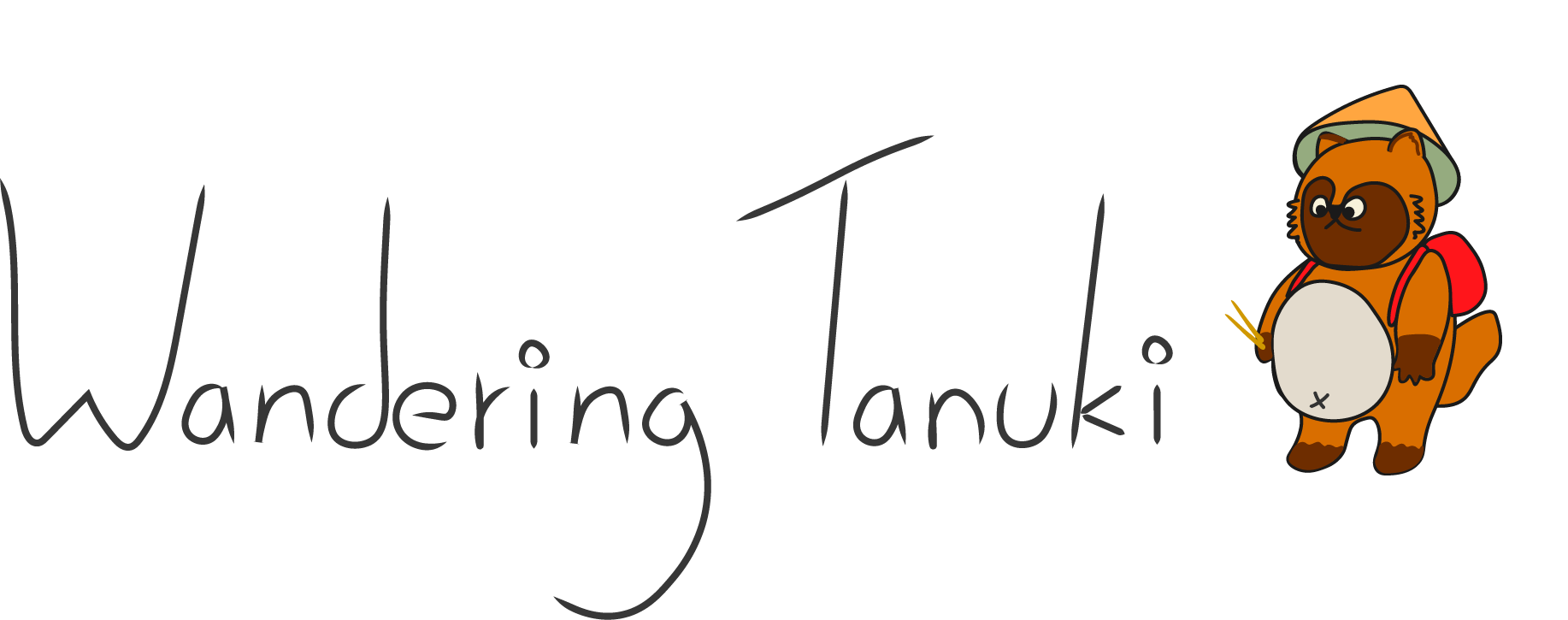Japanese Numbers: Count from 1-100 and beyond
As a Japanese beginner, one of the first things you’ll want to learn is about Japanese numbers. In this article, we’ll be going over the basics of how to count from 1-10, as well as counting further until 100 and beyond. Knowing the numbers is helpful to know how much things cost, understand phone numbers, and more.
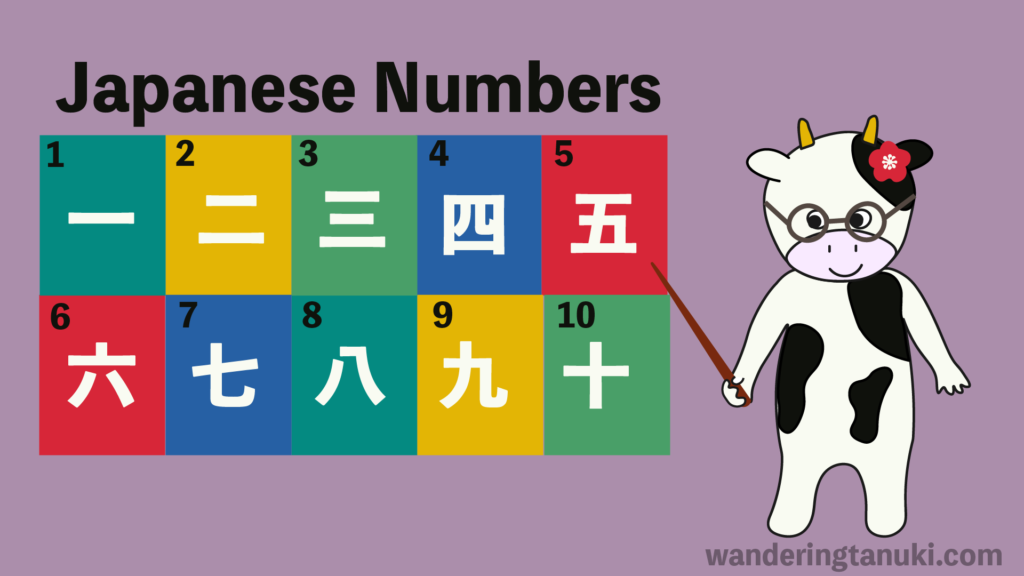
Useful information about Japanese numbers
Before we dive into specific Japanese numbers, it’s good to know some general information!
Similar to Chinese system
If you’re a Chinese speaker, you’re in luck because Japanese numbers follow the same system. The way the numbers are written is exactly the same. The only difference is the way they are pronounced.
Like in Chinese, Japanese numbers also go by groupings of 10,000. This can be quite different from how numbers are perceived by English speakers.
Japanese counter/measure words
When you’re learning numbers, you should also be aware that the Japanese language uses counter or measure words. These words must be attached to numbers when counting specific things. For example, you’d need to add a word to the number based on if you’re counting animals, books, pencils, etc…
This can be confusing for beginners, so we’re only focusing on how to count basic numbers. Just keep in mind that you’ll eventually have to learn about the counter/measure words in the future!
How to say zero
There are two ways to say zero in Japanese. However, it’s more popular to use the English pronunciation of zero, ゼロ, in Japan.
ゼロ – zero
零 – rei
Count from 1-10 in Japanese
Here are the numbers from 1-10! As you’ll notice, the numbers for four, seven, and nine can be read in different ways.
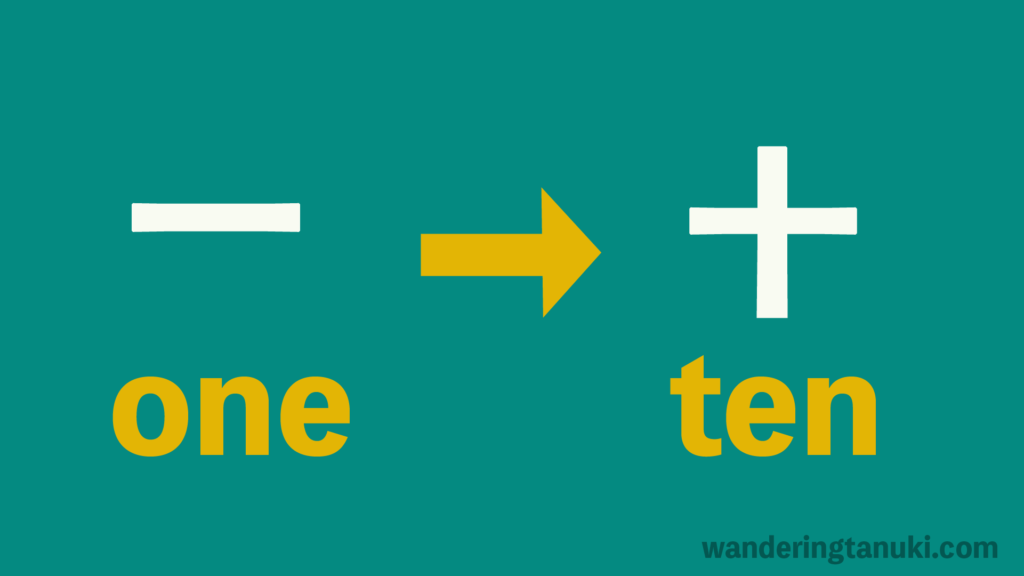
One – 一 – ichi
Two – 二 – ni
Three –三 – san
Four – 四 – shi, yon
Five – 五 – go
Six – 六 – roku
Seven – 七 – shichi, nana
Eight – 八 – hachi
Nine – 九 – kyuu, ku
Ten – 十 – juu
Different number readings for Four, Seven, and Nine
Four, seven, and nine have two different readings. Japanese people will choose the one that sounds the best depending on the situation.
Yon, nana, and kyuu are used as the name for the standalone number. For example, if you see the number four you’d say yon and not shi. The same rule would apply to the number seven and nine.
Most people will use shi and shichi when counting up from 1-10. However, when counting down from 10-1 they will usually say nana and yon. This just sounds more pleasing to the ear. For nine, you could use either ku or kyuu when counting up and down, but kyuu is more common.
Count from 10-100 in Japanese
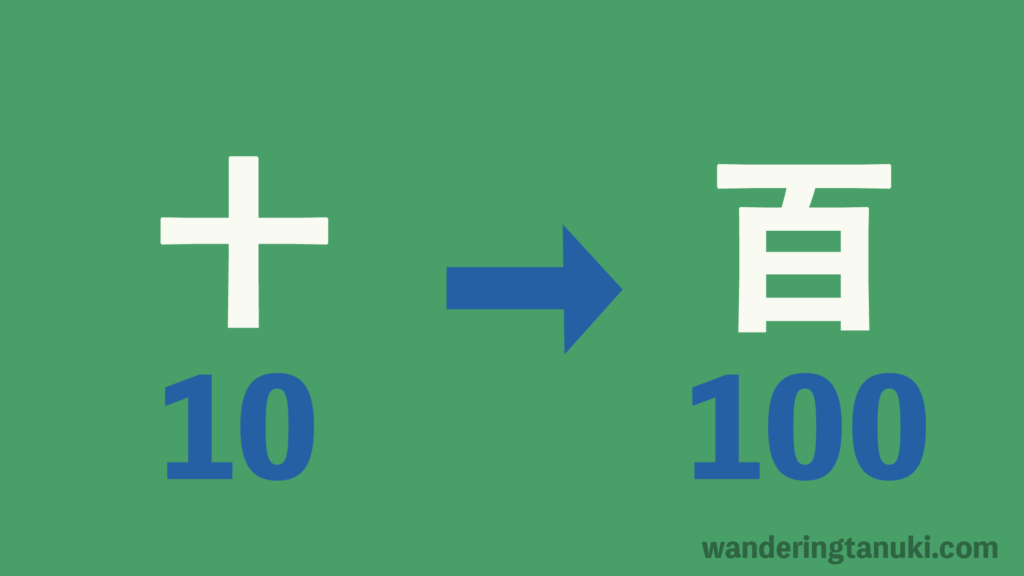
Now that you’ve learned 1-10, it’s time to go further! Over 10, numbers are simply combined together. Once you know the rules it can be easy to count higher numbers.
For example, the number twelve would be 十二 (juu ni) a combination of ten and two. This is way easier than learning numbers in English.
Here are some new numbers you’ll need to know to create any Japanese number between 10-100.
Twenty – 二十 – Ni juu
Thirty – 三十 – San juu
Forty – 四十 – Yon juu (sometimes shi juu)
Fifty – 五十 – Go juu
Sixty – 六十 – Roku juu
Seventy – 七十 – Nana juu
Eighty – 八十 – Hachi juu
Ninety – 九十– Kyuu juu
One hundred – 百 – Hyaku
With these new numbers you can form any Japanese number from 10-100. Combine the tens digit with the ones digit just like in English. For example, to make the number twenty one, it would be 二十一 (nijuu ichi). The words for twenty 二十 (nijuu) and one 一 (ichi) are combined together.
Now that you know how to make the Japanese numbers, here’s a quiz!
How do you say/write the following numbers: 35, 42, 15, 98, 63?
Answers:
35 – 三十五 – san juu go
42 – 四十二 – Yon juu ni
15 – 十五 – juu go
98 –九十八 – kyu juu hachi
63 – 六十三 – roku juu san
Japanese numbers 100 – 10,000
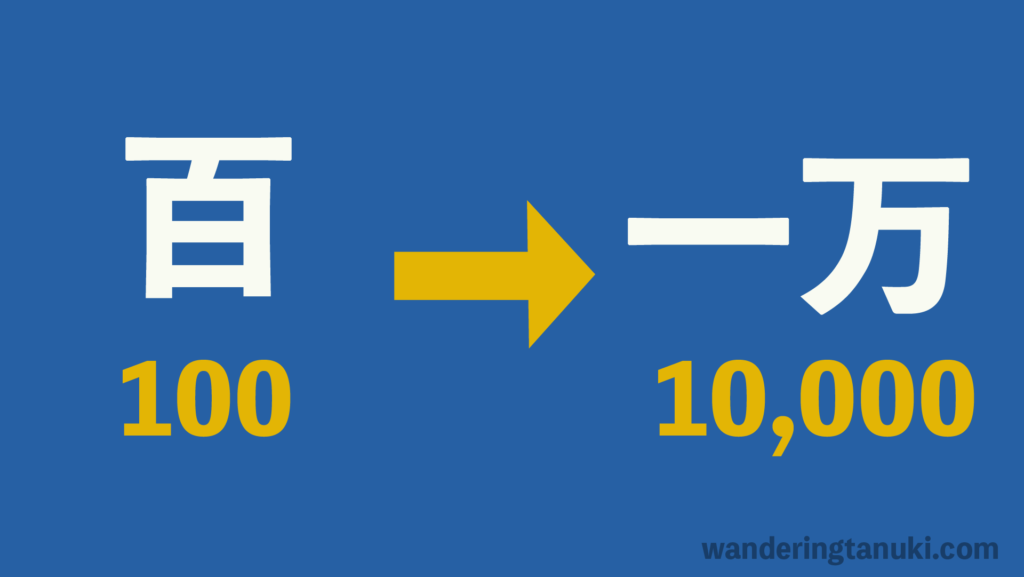
It’s time to go beyond 100, if you’ve mastered counting from 1-100! When counting over 100 the rules are relatively straight forward.
Just like counting 10-100, you simply combine numbers together. For example, 161 would be 百六十一 (hyaku roku juu ichi). Notice how it is a combination of the words for one hundred 百 (hyaku), sixty 六十 (rokujuu) , and one 一 (ichi).
Zeros are always implied when combining numbers so there is no need to add them. This means that 103 would be 百三 (hyaku san), a combination of one hundred 百 (hyaku) and three 三 (san).
Here are some new numbers you’ll need to know to create any number from 100-10,000.
200 – 二百 – ni hyaku
300 – 三百 – san byaku
400 – 四百 – yon hyaku
500 – 五百 – go hyaku
600 – 六百 – roppyaku
700 – 七百 – nana hyaku
800 – 八百 – happyaku
900 – 九百 – kyuu hyaku
1000 – 千 – sen
2000 – 二千 – ni sen
3000 – 三千 – san zen
4000 – 四千 – yon sen
5000 – 五千 – go sen
6000 – 六千 – roku sen
7000 – 七千 – nana sen
8000 – 八千 – hassen
9000 – 九千 – kyuu sen
10,000 – 一万 – ichi man
Notice how some of the pronunciations are slightly different from what you might expect. For example, san byaku instead of san hyaku. Also, you must add a one before 万 to say 10,000.
Now that you know these larger numbers, you can combine them again to make any number. For example, let’s try making 4,563. This would be 四千五百六十三, which is a combination of four thousand 四千 (yonsen), five hundred 五百 (gohyaku), sixty 六十(rokujuu) , and three 三 (san).
Here’s another quiz!
How do you say/write the following numbers: 503, 3642, 787, 9650?
Answers:
503 – 五百三 – go hyaku san
3642 – 三千六百四十二 – san zen roppyaku yon juu ni
787 – 七百八十七 – nana hyaku hachi juu nana
9650 – 九千六百五十– nana hyaku hachi juu nana
Japanese numbers above 10,000?!
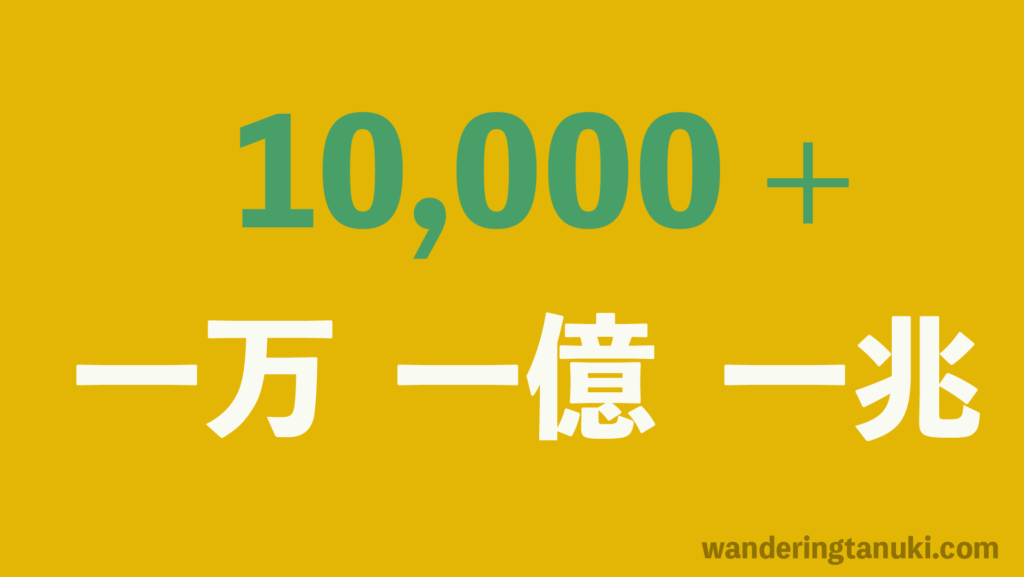
Congratulations, you’ve mastered the numbers up to 10,000! The rules for combining numbers to create even larger numbers are the same as in previous sections. For example, 10,503 would be 一万五百三 (ichiman gohyaku san).
I’ll introduce a few things relating specifically to numbers over 10,000.
Counting in 10,000’s
In Japanese, numbers are grouped by 10,000 following the Chinese system. This can take some calculation if you’re not used to it. For example, if you want to say 100,000 you have to say that it is ten ten thousands. It would be 十万 (juu man). Furthermore, if you want to say million, you still have to calculate in 10,000’s. This means one million is 百万 (hyaku man) or one hundred ten thousands.
Here are some numbers that are grouped by 10,000 so you can get an idea.
20,000 – 二万 – ni man
30,000 – 三万 – san man
40,000 – 四万 – yon man
.
.
100,000 – 十万 – juu man
110,000 – 十一万 – juu ichi man
.
.
1,000,000 – 百万 – hyaku man
10,000,000 – 一千万 – issen man
.
.
90,000,000 – 九千万 – kyuu sen man
How to go even higher:
The next two number groupings are one hundred million and one trillion. You’re unlikely to use these numbers but it’s good to know! You might hear them when someone is talking about the economy, astronomy, or history.
One hundred million – 一億 – Ichioku
One trillion – 一兆 – icchou
Using oku, you can also count in billions. One billion is 十億 (juu oku) which is ten one hundred millions. When counting in Japanese, you might have to do some calculations since it’s different from the English speaking system.
I hope that this guide will help you learn all the numbers you need to know in Japanese! If you’re interested in other Japanese language learning blog content, be sure to check out Japanese names: What they mean and how they work! or How to say goodbye in Japanese: Beyond sayounara
~ Tanuki





